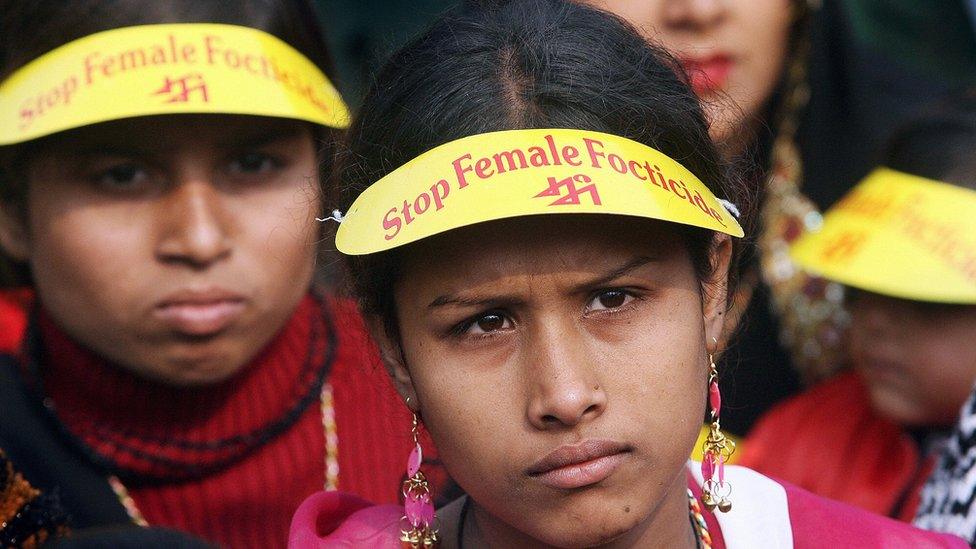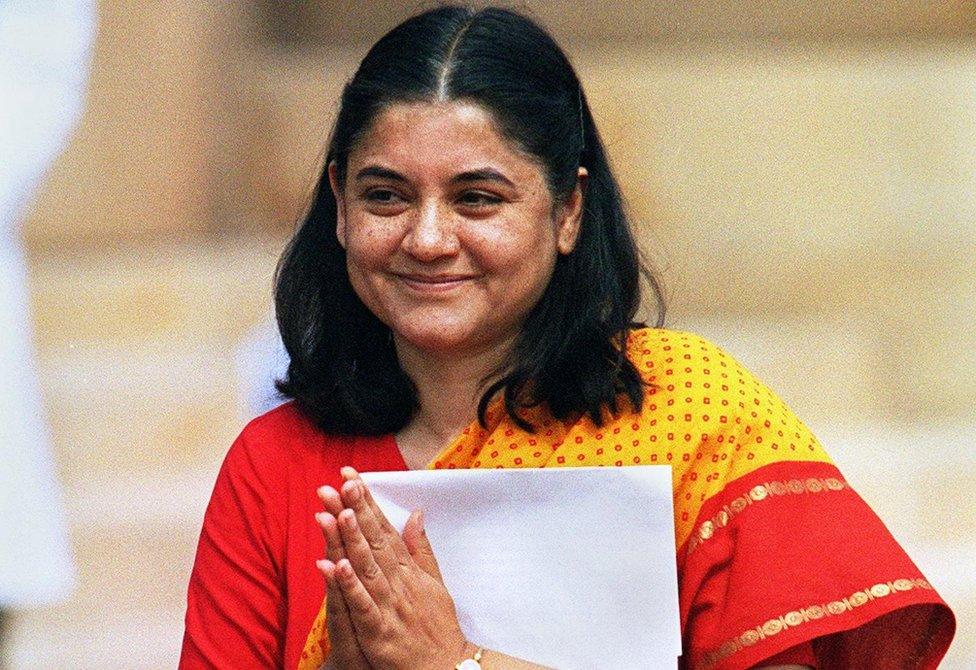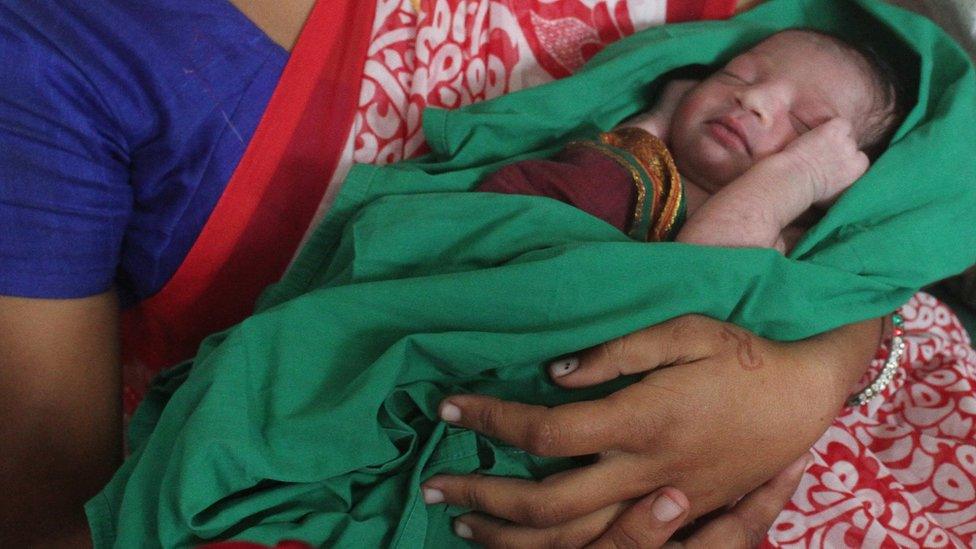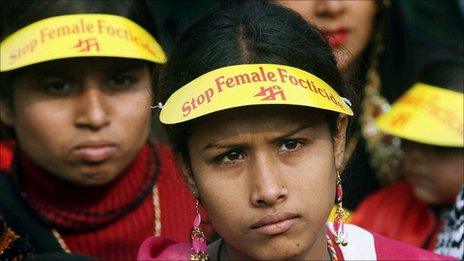India outrage over Maneka Gandhi's 'compulsory gender test' remark
- Published

India has one of the most unbalanced gender ratios in the world
India's minister for women and children has been criticised for proposing compulsory gender testing of foetuses to tackle the skewed sex ratio.
Maneka Gandhi said the strategy would help monitor pregnancies and reduce abortions of female foetuses.
But activists and opposition parties say it will increase pressure on women to undergo sex-selective abortions.
Tests to determine a foetus's sex are banned in India, but many parents still have them done illegally.
A traditional preference for boys and an easy availability of antenatal sex screening has led to India having one of the most unbalanced gender ratios in the world.
In 1961, there were 976 girls for every 1,000 boys under the age of seven. According to the latest census figures released in 2011, that figure had dropped to a dismal 914.
Prime Minister Narendra Modi has criticised female foeticide, warning that the gender imbalance will have serious consequences for India's development.
His predecessor Manmohan Singh described it as a "national shame" and called for a "crusade" to save India's girls.

Minister Maneka Gandhi's statement has been extensively criticised
Over the years, campaigners have said the decline was largely due to the increased availability of antenatal sex screening. In 1994, India outlawed sex-selective abortion.
That's why Mrs Gandhi's controversial statement that "every pregnant woman should be compulsorily told whether it is a boy or girl" has generated such a storm.
Amid the furore, Mrs Gandhi's ministry clarified on Tuesday that it was just "a point of view" to start a debate and that there was no formal proposal before the cabinet. But opposition parties and women's rights activists said her suggestion could prove counter-productive.
The Congress party said the minister's statement was "shocking and outlandish" and that the "government appears determined to convert 'save the girl child' campaign into 'banish the girl child' campaign".
"Lifting the ban will undo years of hard work, institutional mechanisms and legal framework that has been put in place for the last two decades to discourage female foeticide," the party said in a statement.
The head of the local Delhi government's women's commission, Swati Maliwal, also criticised the minister.
"It will increase female foeticide phenomenally. It is very dangerous and should not be done," she said.
Critics say that Mrs Gandhi's idea to "monitor right until the end" every pregnancy is impractical - especially in rural India where health services are far from adequate, and even non-existent in some areas.
- Published31 January 2016

- Published23 May 2011
